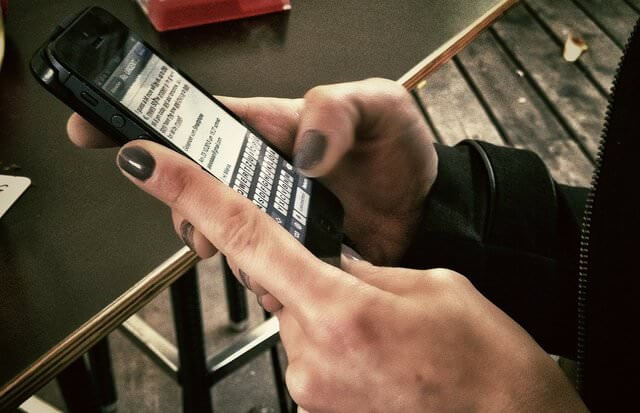Contacting Committee Members During the Holidays: Dos and Don’ts
To continue with the subject of holiday breaks, I wanted to write about what could be seen as a touchy subject: contacting committee members during the holidays. Maybe you’re a person who is thinking, “Who would disturb their committee members during their well-deserved break?” Or maybe you’re a person who is thinking, “I plan to work on my dissertation during the holidays, so I expect my committee members to be available, too.” Whichever category you fall under, you will want to read my dos and don’ts of contacting committee members or professors during holiday breaks.
Do ask plenty of questions before the break.
If you have a few questions on your mind a couple weeks before the holidays, then complete the list by thinking of questions you might have over the break. The way to think ahead is to schedule your break to know what chapters you might work on during the break. Then, you can schedule a meeting with one or a few committee members to ask your questions and get them out of the way before the break. Basically, try to get every ounce of assistance you think you might need through the break ahead of time. Do this a couple weeks in advance of the holidays so you can ensure that you’ll get satisfactory and complete answers in time for everyone to enjoy their well-earned break.
Another thing to do before the break is to open communication and make sure that contacting your committee members or professors is okay to do during the holidays. As one of my colleagues put it, “ask if they have extensive travel plans and/or plan to be out of pocket for considerable periods” of time. That way, you’ll be able to gauge whether or not you should contact them through the break and when.
Do send comprehensive but quick e-mails.
If you must contact your committee members because their answers to your questions from before the break do not keep you occupied in your work until the next semester, then draft an e-mail after you have thought of a comprehensive list of questions. You should create a comprehensive list of questions before e-mailing professors or committee members because it would be better for them to receive one comprehensive e-mail rather than five different e-mails with one question each. On the other hand, make sure that your e-mail won’t take an hour for committee members or professors to read. Keep your questions and comments as concise and detailed as possible. If you need further assistance with how to write e-mails, I’ve come up with an e-mail template that you can use throughout the break, if necessary:
Dear Professor Xxxx,
I hope your holiday break is going well. I remember your telling me about your ______-long vacation, and I found that now would be a good time to e-mail you a few questions about my ______. Please feel free to either respond to this e-mail or wait until we return to school; I don’t want to take too much time away from your break. My questions are as follows:
- Question A
- Question B
- Question C
Thank you for your time, and again, please feel free to either e-mail me back during the break or wait until we return to school. Enjoy the rest of your break.
Regards,
[Signature]
Don’t be demanding.
If you ultimately decide that you have to contact your committee members during holiday breaks, what you decide to say can either help or hinder your relationship with them. I’ve heard of many broken committee member and student relationships because of poor communication, and I wrote about how to avoid these situations in a blog post from March, entitled 4 Ways to Communicate Better With Your Dissertation Committee. I’ve also heard of plenty of examples in which communication barriers were opened, and both student and professor were able to communicate well with each other.For instance, the same colleague I mentioned before told me about a situation in which he had to contact a professor with whom he collaborated on a paper. They were to present the paper for a conference presentation in February, so work over the holiday break was inevitable for both of them. In his case, he needed to contact his professor regularly to ensure that their paper was progressing. He was asked to e-mail twice weekly to communicate how he was progressing in his part of the paper, and he would only e-mail his professor those times unless she asked questions in her own e-mails that required responses; my colleague did not demand questions he had during the holiday season.
Don’t expect responses.
As shown in the e-mail example, you should provide committee members and professors an option of not replying until after the holiday break. The only reason they are probably answering your e-mail in the first place is if they happen to find a small break in between holiday festivities and resting from their stressful job. When he told me of his situation, my colleague stated that he “made sure to indicate which emails [he] sent did not require a response so it would not burden [his professor] with feeling an obligation to respond at a personally inopportune time during the holidays.” I’m sure that receiving progress reports of his work that also noted that the professor didn’t need to respond was relieving.
In closing, use your best instinct. Don’t be a burden on your committee members or professors because they will, without a doubt, have a flood of e-mails to deal with when they return. Get your work done to the best of your abilities, and be patient with your professor when you return from the break so that he/she can assist other students. For now, finish your question list before the holiday break, and let me know if you have any questions or comments in the comment section below.


0 comments